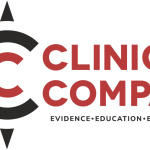
Comparative Billing Report (CBR)?

Recently, many chiropractors throughout the nation received their Comparative Billing Report (CBR). In an attempt to educate top utilization providers, the Zone Program Integrity Contractors provided those specific providers with a CBR. Whether or not you received a CBR, you should be aware of the findings of the report.
New Contractor
The Centers for Medicare and Medicaid Services (CMS) has added a new contractor in its army of health care auditors. The Zone Program Integrity Contractor (ZPIC) is the latest approach by CMS to audit and enforce its program guidelines. Prior to the formation of the ZPICS, there were different entities such as the Program Safeguard Contractors (PSC), Medicare drug integrity contractors (MEDICs) and the Recovery Audit Contractors (RAC). There is no uniformity in jurisdiction for each of these entities, therefore one entity may be overseeing a portion of Part A providers (hospitals) and another may be overseeing another portion of Part B (physician’s offices) in the same state.
To make the system more efficient, CMS gave jurisdiction to the ZPICs to oversee all Medicare claims for their appointed zones of the state. Eventually, ZPICs will be entrusted in ensuring the integrity of all portions of Medicare. This will include Part A, Part B, Part C, and Part D Medicare.
Comparative Billing Report
The Comparative Billing Report was sent to the top 5,000 utilizers and providers to the Medicare program. As such, if you received a CBR, you are one of the top 5,000 chiropractors seeing Medicare patients. Good for your practice, but not so good for looming audits. ZPIC has used information from the CMS computer profiles to not only see who are the top providers, but also where you are skewed compared to your colleagues.
It is to your benefit to study your profile and compare yourself to others nationally, but especially in your state. If you are too high in one area, then you may be singled out for a future audit. When I recently called the ZPICs, I was informed that they are not using this information for audits “at this time.” The person on the telephone was emphatic about the “this time.” For example, a statistically significant deviation in the billing frequency of 98940, 98941 and 98942 claims may be viewed by an auditor as an indication of improper usage. As such, the question of medical necessity will be a trigger for a possible audit.
Keep in mind that the CBR is for educational purposes. I wonder: if you have been educated that there is a statistical difference between you and your peers and you continue to practice in the same manner, might this indicate an intentional overutilization? This, in itself, may be indicative or at least construed as fraud.
Vulnerability
For those providers that have not received a CBR, you may still be vulnerable to an audit. As such, you have the ability to request your Physician Profile through the Freedom of Information Act. This can be requested through CMS at: http://www.cms.gov/About-CMS/Agency-Information/Aboutwebsite/FOIA.html
I have personally seen a rise in the number of Medicare and Blue Cross audits in the last year. Your status as a participating provider or non-participating provider does not alter the chances of being audited. Medicare has clearly stated that your status as a participating or non-participating physician does not alter the likelihood of an audit. As a result, cash practices are also held to the same standards and audit risks.
Be Proactive
To prevent an unforeseen audit and eventual reimbursement of funds to Medicare or another carrier, it is recommended that you become proactive in your approach to documentation, coding, and compliance. This can be accomplished through internal audits and education.
Even though many are frustrated by the level of audits conducted by carriers, accountability, accuracy, and efficiency are the key to practicing with decreased stress. In fact, the Office of Inspector general has stated that a proper compliance audit and manual will not only uncover deficiencies in your practice but may also be used as a mitigating factor in the case of fines and/or jail time. The most accurate way to assess your entire practice is to perform an internal audit or review at your office. Another alternative is to have a certified compliance specialist audit your documentation, billing, and coding for accuracy and compliance.
Many educational opportunities are being offered to our profession by the Illinois Chiropractic Society. For a listing of upcoming Medicare, coding and compliance classes, see our website at www.illinoiscme.com.
Dr. Fucinari is a Certified Medical Compliance Specialist and a Certified Insurance Consultant. For further information on compliance audits or record reviews, please contact Dr. Fucinari at Doc@Askmario.com Classes are now forming to become a Certified Compliance Specialist (MCS-P). See www.AskMario.com for details.
Editor’s Note:
The information in this article is the opinion of the author only. It is not intended to be, nor does it substitute for, a legal opinion or individual legal advice either by the author or the Illinois Chiropractic Society. The Illinois Chiropractic Society strongly recommends that individual health care providers seek private legal counsel as to the possible ramifications of findings of a self-generated, internal compliance audit, particularly where the insurer has commenced a compliance investigation of the provider.















